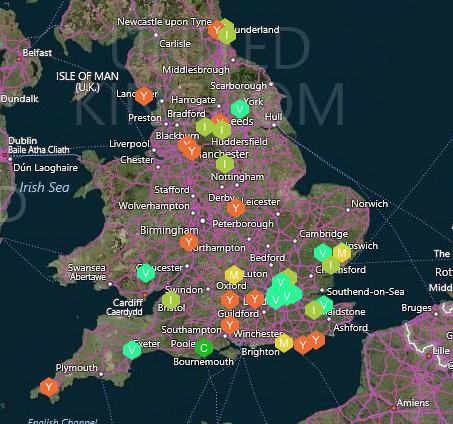Help
Community21 has selected some case study communities and projects to share across the network to inspire and inform others. Should we be featuring yours? If so get in touch.

The Community 21 site is more usually populated by communities located in a particular geographical area, and ours was a community of interest, spread around the country. Nevertheless, we found that the facility to drop pins on to a map, with text boxes giving details of each service met our needs perfectly, with a front page giving more information about the project, the individuals concerned and even a link to twitter. We were warned at the start about the care needed in entering data, and quickly adopted a scheme that allowed for almost foolproof administration, with each entry taking around 30 minutes to compile the information into the correct format and then locate the service on the map.
The project acquired funding for a six-month period, which has now come to an end. In all, 40 services have been identified and located on the map, more than twice as many as were known about at the start; with a further twenty not yet returning all their data. The map has already brought new understanding to the table, in terms of which agencies are providing specialist help, how different models are emerging, and the role of gender and age in determining what help is available. By far the most common model is support for both parent and young person separately, over a three-month period, with a combination of both group support and 1:1 intervention; but that help might be offered in a range of agencies, depending on where the need has been identified.
We now face a decision as to how to take our findings forward. One issue has been about publicising the map and how to make it more visible. We hope to be able to continue adding data as more services are discovered, but this will require additional funding and ownership, two other hurdles to be jumped. We are pleased that the original aims of the project have been met, and hope that the information gained will now assist families in finding help, as well as feeding into future research into this important issue.
Helen Bonnick and Paula Wilcox January 2016
Link to map: /partners/cpv/